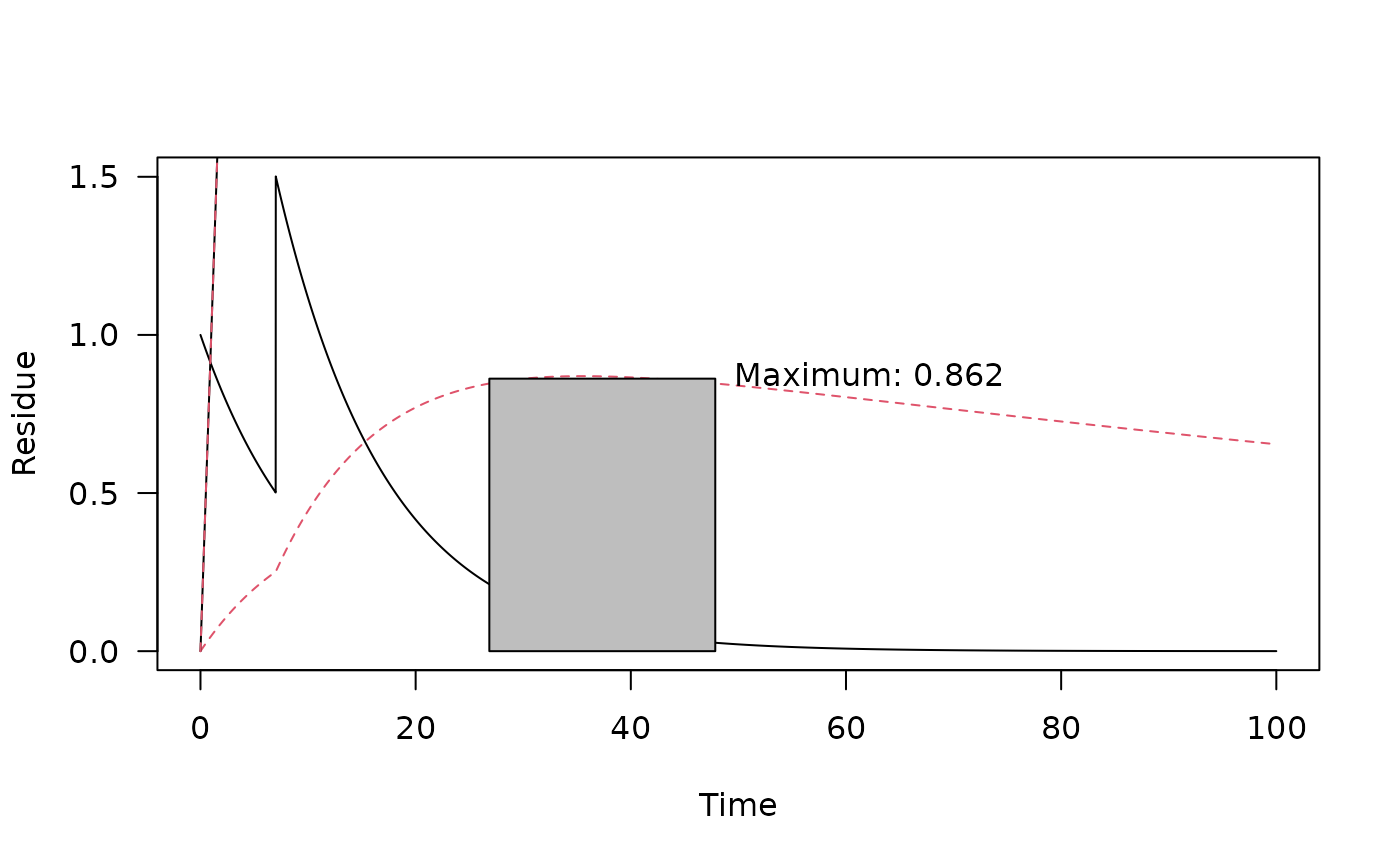Create decline time series for multiple applications
sawtooth.RdIf the application pattern is specified in applications,
n and i are disregarded.
sawtooth( x, n = 1, i = 365, applications = data.frame(time = seq(0, (n - 1) * i, length.out = n), amount = 1) )
Arguments
| x | A |
|---|---|
| n | The number of applications. If |
| i | The interval between applications. If |
| applications | A data frame holding the application times in the first column and the corresponding amounts applied in the second column. |
Examples
applications = data.frame(time = seq(0, 14, by = 7), amount = c(1, 2, 3)) pred <- one_box(10) plot(sawtooth(pred, applications = applications))m_2 <- mkinmod(parent = mkinsub("SFO", "m1"), m1 = mkinsub("SFO"))#>fit_2 <- mkinfit(m_2, FOCUS_2006_D, quiet = TRUE)#> Warning: Observations with value of zero were removed from the datapred_2 <- one_box(fit_2, ini = 1) pred_2_saw <- sawtooth(pred_2, 2, 7) plot(pred_2_saw, max_twa = 21, max_twa_var = "m1")max_twa(pred_2_saw)#> $max #> parent m1 #> 0.7834480 0.8617048 #> #> $window_start #> parent m1 #> 0.00 26.85 #> #> $window_end #> parent m1 #> 21.00 47.85 #>

